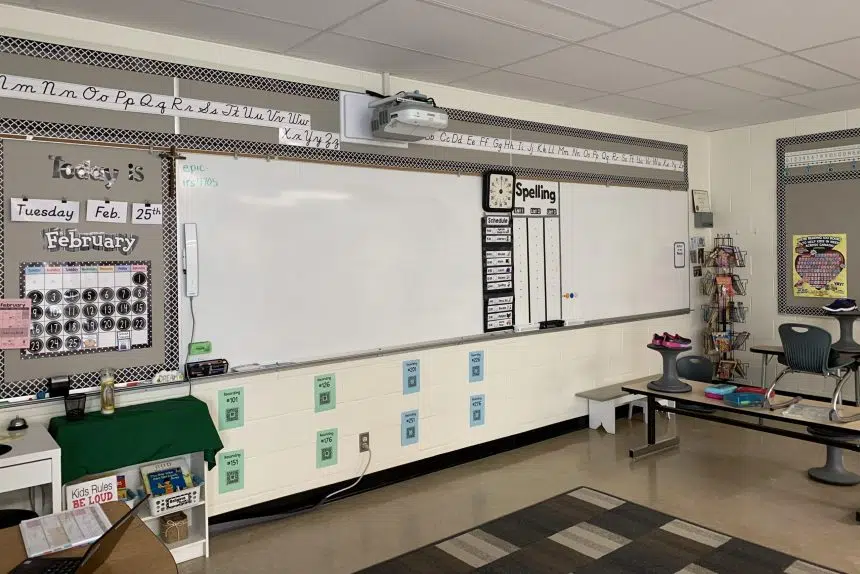Parents with kids in school can likely breathe a sigh of relief, at least for this week.
Patrick Maze, the president of the Saskatchewan Teachers’ Federation (STF), said his meeting Tuesday with Education Minister Gord Wyant was “productive” and “positive.”
Because of that, Maze said teachers likely won’t be exercising their sanctions mandate before the sides meet again next week.
“It would be safe to assume that we would wait until that meeting to see how that goes,” Maze said.
The sides haven’t been on the same page during negotiations, primarily on the issues of class size and composition. The meeting Tuesday wasn’t a formal negotiation session, but resulted from the recommendation of a conciliation report urging the sides to find common ground.
Maze suggested that process began during the meeting.
“We’ve started towards meeting in the middle a little bit,” he said. “The ministry (of education) obviously accepts that there’s work that needs to be done in our classrooms. It’s just a case of what that fix looks like and how that fix is acceptable to all different parties at the table.”
Maze said he, Wyant and representatives of the Saskatchewan School Boards Association (SSBA) plan to meet again next week, but they have yet to set a day.
“The main topic of (Tuesday) morning’s discussion was class composition and making sure that teachers are feeling successful in classrooms and that leads to students’ success as well,” Maze said.
He wouldn’t say if there are any items on which the STF and the province aren’t finding middle ground.
On Monday, it was revealed that more than 90 per cent of teachers had voted to take some sort of action to get negotiations moving.
They could withhold voluntary services like extracurricular activities, strike on a rotating basis, or work to rule where teachers show up right before class starts and don’t take any materials home with them.
Wyant believes continuing the conversations might help prevent teachers from acting on the sanctions vote.
“As long as we’re talking, I think that’s a positive thing for not just teachers, but for the children in our classrooms,” he said.
He added the government respects the rights of teachers to take any type of job action as part of bargaining, but he believes the union leadership doesn’t want to get to that point.
Wyant did not want to discuss details about the conversations with the STF and the SSBA, but said everyone agreed the issues are serious and they all want to find a path forward.
“Presumably if that breaks down, that’s at the point in time when the STF will take the opportunity to exercise sanctions,” Wyant said. “But until that happens, we continue to be very optimistic about an ongoing discussion.”
The government is still clear on its position that mandating classroom composition doesn’t belong in a collective bargaining agreement.
“Teachers have their perspective and so do we, but I honestly believe after listening to the conversation (Tuesday) morning and participating in it that there’s a middle ground to be found between the two parties,” Wyant said.
– With files from 980 CJME’s Adriana Christianson











